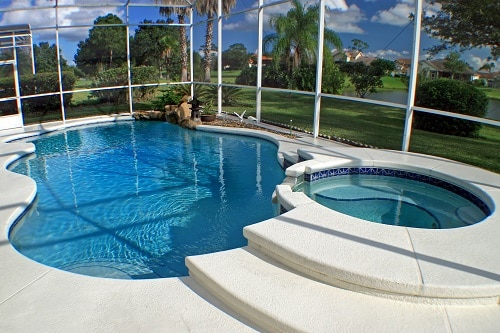Centrifugal pumps are one of the most common pumps in the world. They are used over a wide variety of applications because they have a simple design that produces high efficiency. They can handle a diverse range of head and capacity while producing a high flow rate. They rank high for ease of operation.
Centrifugal pumps have one or more impellers which are attached to a pump shaft. The impellers rotate and move the impellers against the side of the chamber. This moves the water and creates low pressure in the chamber near the inlet, creating suction on the intake side as water is pumped through the output side.
Centrifugal pumps are particularly amenable to high flow rates and low-viscosity liquids. They can be used across a wide range of scientific, commercial, industrial, residential and municipal operations.
Applications of Centrifugal Pumps

In the water treatment industry, diaphragm type centrifugal pumps can be used for metering precise amounts of liquid for the purpose of treating drinking water, boiler water, swimming pool water and wastewater. They can also be used for applications requiring high water pressure and applications where the fact that the pump does not have a seal is a benefit.
Other professions or places where such pumps are used: dairy farms, utility companies for turbines, food service and processing, distilleries, construction, automotive companies, production lines, chemical processing and laboratories.
Advantages of Centrifugal Pumps
Since there are no drive seals, there is no risk of a leak. This makes centrifugal pumps perfect for hazardous materials. Due to no drive seals, there is no friction loss, noise or wear. The fluids being pumped are completely separated from the pump drive. The result is that centrifugal pumps are nearly 100% efficient in using motor power to create pumping power.
The pump chamber is separated from the motor by an air gap, preventing heat transfer. It is impossible for liquid to seep into the motor from the pump. Friction is greatly reduced. Magnetic coupling “breaks” before high pressure can damage the pump.
To learn more, call Pump Solutions Australasia today: 08 9408 1544.
